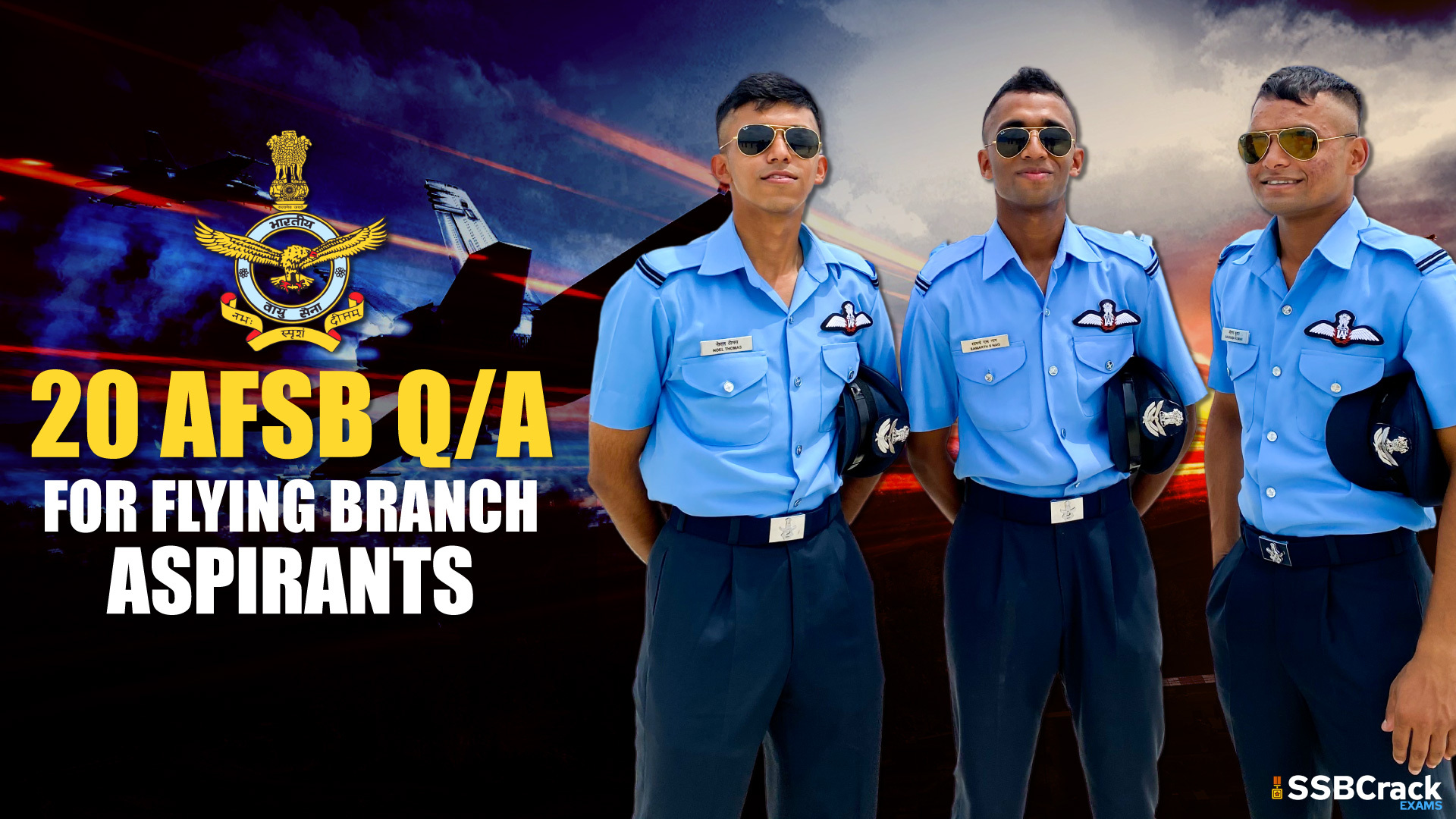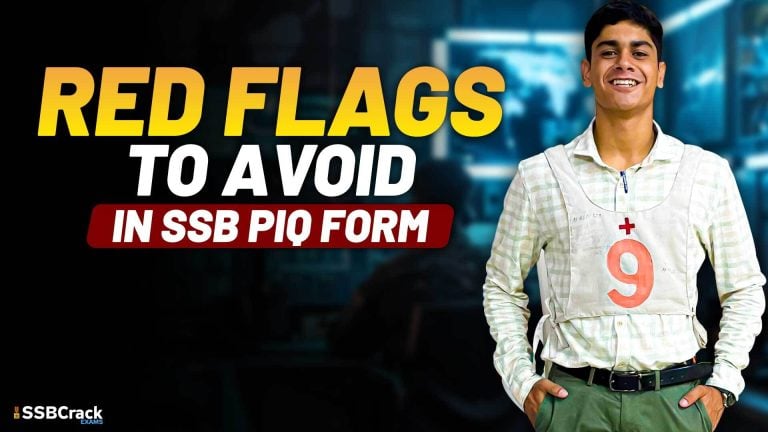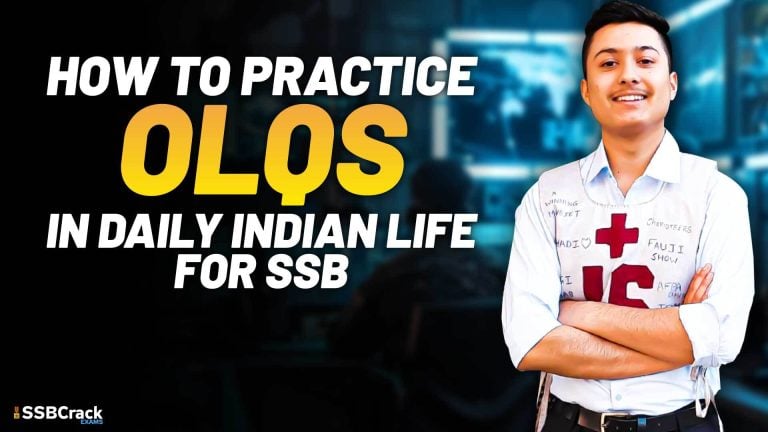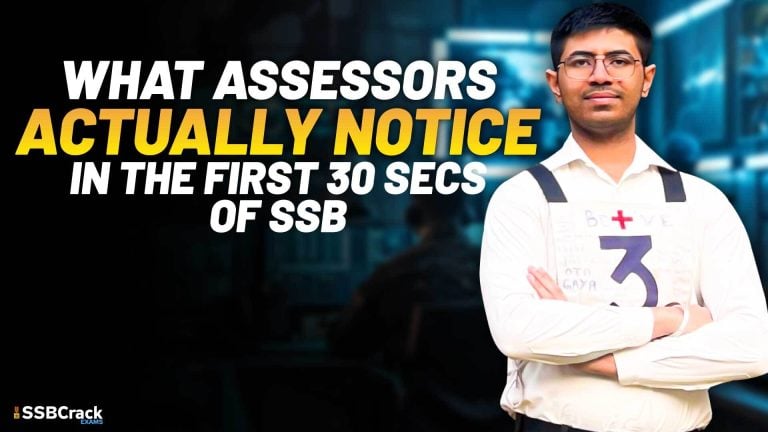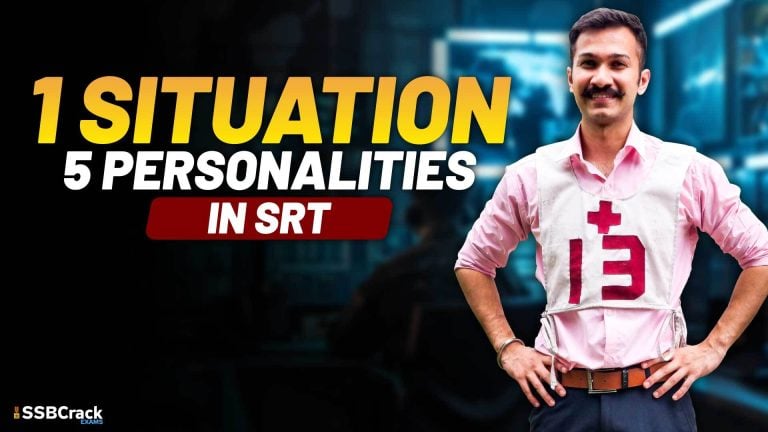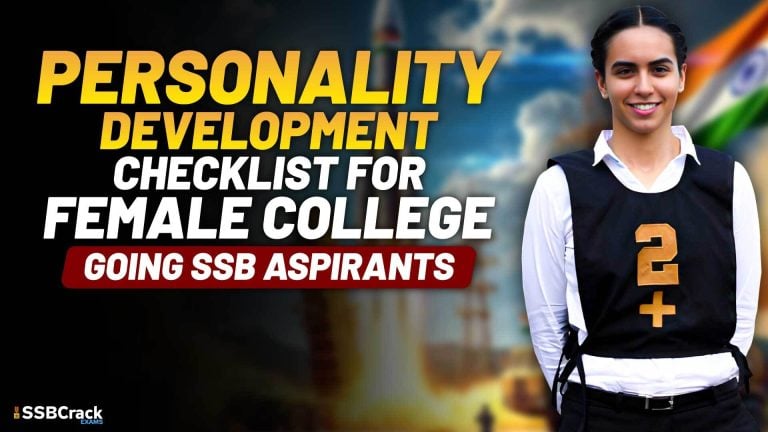Joining the flying branch of the Indian Air Force is a dream of many aspirants but not everyone gets the chance to fly the supersonic jets, if you are preparing for the AFSB interview and trying to clear it for the flying branch, below are few AFSB interview questions you might face in your personal interview, these questions are basically related to aircraft and flying.
It is very common that entry related questions are asked to a candidate based on his branch, qualification, and what he/she is applying for. If a candidate is from NCC, he is expected to know the basics of the Indian armed forces. Similarly, if a candidate is an engineer, he/she is expected to know basic field related knowledge. In this article, we will see the probable questions a candidate can expect if he is opting for the flying branch. A candidate opting for the flying branch must have Physics and Math at 10+2 level.
AFSB Interview Questions Common
Q) What are the three sub-branches in which the flying branch is trifurcated into?
Ans. Helicopters, Fighters, and Transport
Q) Tell me the names of 3 helicopters of the Indian Air Force.
Ans. Mi-17, Mi-35 and ALH Dhruv.
Q) What is the principle on which an aircraft fly?
Ans. Sir, aircraft fly on the principle of aerodynamics or Bernoulli’s principle. The pressure difference over and below the wings gives it a lift whereas the engines give it a thrust.
Q) What is Bernoulli’s principle, give an example?
Ans. Bernoulli’s principle states that an increase in the speed of a fluid occurs simultaneously with a decrease in pressure or a decrease in the fluid’s potential energy – A1V1 = A2V2. Example is a venture tube.
Q) Explain to me what is buoyancy and how is it related to aircraft?
Ans. Buoyancy is the force exerted on an object that is wholly or partly immersed in a fluid. To fly, a plane needs to displace a mass of air down equal to its own mass, each second. The principle of buoyancy applies here too.
Q) Tell me the most recent aircraft inducted into the IAF?
Ans. Tejas is recently inducted into the IAF. It’s an indigenously made Light Combat Aircraft and its squadron is nicknamed ‘The Flying Daggers’.
Q) What is the role of aircraft in the IAF?
Ans. Sir, aircraft are an integral part of any air force. They provide air superiority to any country’s military. In India, the aircraft of the IAF has the same role – to defend our borders and fight in wars.
Q) What is the Air Force doing with its aircraft when it is not at war?
Ans. Sir, when the Air Force, is not at war, it is undertaking Humanitarian and Disaster Relief Operations, participating in exercises with foreign militaries and ultimately, preparing for war.
Q) Name the aircraft that was added to the vintage fleet of IAF.
Ans. Dakota aka Parashuram.
Q) What is the largest aircraft with the IAF?
Ans. The IAF operates Illyushin-76 as its largest aircraft. It is a transport aircraft, also known as Gajraj.
Q) Tell me the name of any 5 transport aircraft of IAF.
Ans. C-130J Super Hercules, C-17 Globemaster, Il-76 Gajraj, An-32 and refueller Il-78.
Q) What is knot, nautical miles, and mach?
Ans. A knot is one nautical mile per hour. A nautical mile = 1.8 km/h and mile = 1.6 km/h. Mach is the ratio of the speed of the object to the speed of sound. If the object is travelling twice the speed of sound, it is said to be travelling in 2 mach.
Q) Tell me the name of 5 fighter aircraft with the IAF.
Ans. Tejas, Su-30, Mig-29, Mig-21 Bison and Jaguar.
Q) What is streamline shape? Why is it important?
Ans. A streamlined shape lowers the friction drag between a fluid, and an object moving through that fluid. This shape is important because it reduces drag to a very high extent.
Questions specific to NCC candidates
Q) Can you tell me what are all the trainer aircraft with the IAF?
Ans. Sir, IAF has Pilatus PC-7, Hawk HJT, Kiran, Dornier, etc.
Q) What is a fly-by-wire system in aircraft?
Ans. Fly-by-wire is a system that replaces the manual flight controls of an aircraft with an electronic interface. The movements of flight controls are converted to electronic signals. It can broadly be understood as digital version of mechanical flight controls.
Q) Name any 5 instruments in a microlight?
Ans. Airspeed Indicator, Altimeter, Slip/Skid Indicator, Compass and Fuel Indicator.
Q) Name the parts of an aircraft starting from nose to tail?
Ans. Cockpit, fuselage, Wings, Undercarriage, stabilizers, aileron, elevators, rudders, etc.
Q) What are the three basic motions of an aircraft?
Ans. An aircraft has three basic motions – Pitching (by elevators), Rolling (by ailerons) and Yawing (by rudder).
Q) In which layer of atmosphere do aircraft fly?
Ans. An airplane flies comfortably in the stratosphere. Below this, the air is moving constantly which causes turbulence.
Conclusion
Irrespective of whether you are an NCC cadet or not, you are not expected to know all the questions related to flying in depth. However, a little more knowledge is always advantageous. If you don’t know anything, just calmly say, “I don’t know sir.”
To join the Indian Air Force and crack the AFSB Interview, You can join our AFSB interview live classes batch and we recommend you to Enroll AFSB INTERVIEW ONLINE COURSE. Trusted by thousands of defence aspirants.
